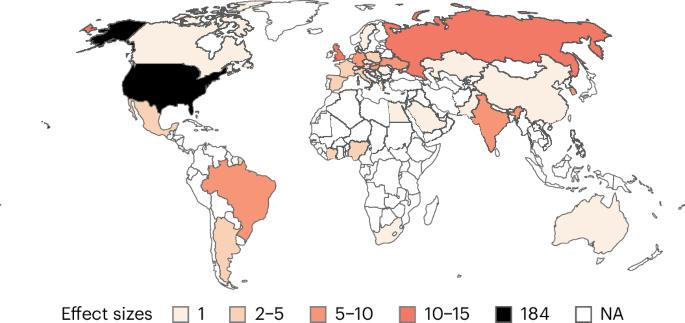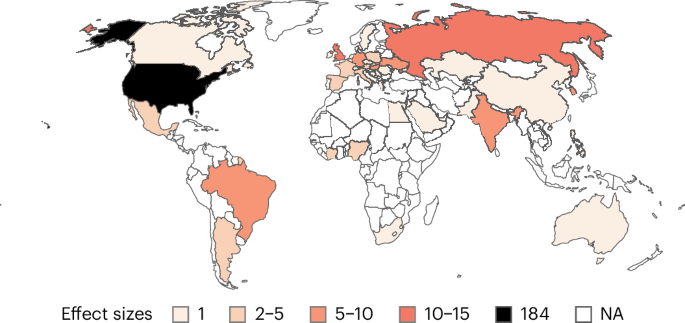发现假新闻,怀疑真新闻:新闻判断的系统回顾与元分析
IF 15.9
1区 心理学
Q1 MULTIDISCIPLINARY SCIENCES
引用次数: 0
摘要
人们判断新闻真实性的能力有多强?我们对67篇评估真实新闻和经事实核查的假新闻准确性评级的实验文章中的303个效应量进行了系统的文献综述和预注册meta分析(n参与者= 194,438人,来自6大洲40个国家)。我们发现,人们对真实新闻的评价比虚假新闻更准确(Cohen的d = 1.12[1.01, 1.22]),对虚假新闻的评价比对真实新闻的评价更好(Cohen的d = 0.32[0.24, 0.39])。换句话说,参与者能够辨别真实和虚假的新闻,他们更倾向于怀疑而不是轻信。我们没有发现新闻的政治一致性对辨别有影响的证据,但参与者对政治不一致的新闻更持怀疑态度(Cohen’s d = 0.78[0.62, 0.94])。这些发现为众包事实核查倡议提供了支持,并表明,为了提高识别能力,增加对真实新闻的接受程度比减少对事实核查假新闻的接受程度有更大的空间。本文章由计算机程序翻译,如有差异,请以英文原文为准。


Spotting false news and doubting true news: a systematic review and meta-analysis of news judgements
How good are people at judging the veracity of news? We conducted a systematic literature review and pre-registered meta-analysis of 303 effect sizes from 67 experimental articles evaluating accuracy ratings of true and fact-checked false news (NParticipants = 194,438 from 40 countries across 6 continents). We found that people rated true news as more accurate than false news (Cohen’s d = 1.12 [1.01, 1.22]) and were better at rating false news as false than at rating true news as true (Cohen’s d = 0.32 [0.24, 0.39]). In other words, participants were able to discern true from false news and erred on the side of skepticism rather than credulity. We found no evidence that the political concordance of the news had an effect on discernment, but participants were more skeptical of politically discordant news (Cohen’s d = 0.78 [0.62, 0.94]). These findings lend support to crowdsourced fact-checking initiatives and suggest that, to improve discernment, there is more room to increase the acceptance of true news than to reduce the acceptance of fact-checked false news. Pfänder and Altay conduct a systematic review and meta-analysis of 67 experimental articles, showing that people discern true from false news with ease. When making mistakes, people err on the side of skepticism and rate true news as false, instead of being fooled by false news.
求助全文
通过发布文献求助,成功后即可免费获取论文全文。
去求助
来源期刊

Nature Human Behaviour
Psychology-Social Psychology
CiteScore
36.80
自引率
1.00%
发文量
227
期刊介绍:
Nature Human Behaviour is a journal that focuses on publishing research of outstanding significance into any aspect of human behavior.The research can cover various areas such as psychological, biological, and social bases of human behavior.It also includes the study of origins, development, and disorders related to human behavior.The primary aim of the journal is to increase the visibility of research in the field and enhance its societal reach and impact.
 求助内容:
求助内容: 应助结果提醒方式:
应助结果提醒方式:


